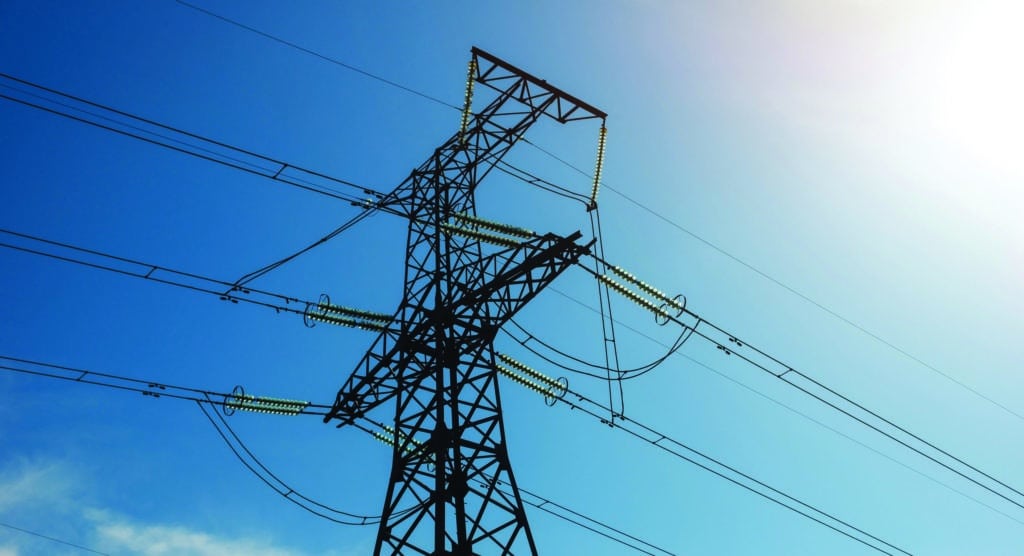
Question 1 is a Citizen’s Initiative that will appear in the November 2021 Maine Referendum Election. This question aims to halt the construction of the “CMP Corridor”, as well as provide additional legislative oversight for future high-impact transmission lines, including lines that cross public lands.
Though Maine Audubon has serious concerns about the corridor’s negative impact on wildlife and wildlife habitat, we are not taking a position on the referendum. Instead, we’re providing information to help Maine Audubon members and supporters better understand the question.
Question 1 asks: Do you want to ban the construction of high-impact electric transmission lines in the Upper Kennebec Region and to require the Legislature to approve all other such projects anywhere in Maine, both retroactively to 2020, and to require the Legislature, retroactively to 2014, to approve by a two-thirds vote such projects using public land?
Question 1 essentially asks three different questions, each of which relate to the citizen-initiated legislation.
Do you want to ban the construction of high-impact electric transmission lines in the Upper Kennebec Region, retroactively to 2020?
This portion of the question seeks to ban all high-impact transmission lines in the area where a new corridor would be cut to accommodate the New England Clean Energy Connect project (i.e., the “CMP Corridor”). Maine Audubon has expressed significant concern about this project’s impact on wildlife and habitat, particularly in the Upper Kennebec Region. We were heavily engaged in the Maine Department of Environmental Protection (DEP) permitting process and ultimately concluded that the project does not adequately mitigate against or compensate for its unprecedented impact to valuable wildlife habitats.
Maine Audubon found that the DEP’s final permit and permit conditions for the project was lacking in several respects: 1) 40,000 acres of additional, offsite land conservation mitigation is not enough to offset lost habitat function and the type of habitat that would be altered, given the area’s unique character and the many cumulative impacts to wildlife and habitat in the region; 2) The lands to be conserved do not require any third-party involvement or review to ensure the selected lands will meet the permit’s land conservation goals and conditions; 3) The permit does not adequately minimize and compensate for impacts to nearly 250 vernal pools (at least 43 of which are Significant Vernal Pools); 4) The permit does not require sufficient funding to adequately replace culverts in the project area that obstruct fish and wildlife passage; and 4) The vegetation and invasive species management requirements are inadequate to meet the desired goals. Please see this blog post to learn more.
Answering “yes” to this question would halt the construction of the CMP Corridor and any similar projects in the area in the future. If the question succeeds, it is very likely that CMP would initiate litigation.
Do you want the Maine Legislature to approve the construction of high-impact electric transmission lines, retroactively to 2020?
In order to meet Maine’s ambitious and necessary renewable energy goals, and in turn our greenhouse gas emission reduction targets, Maine will need new high-impact electric transmission lines. Experts have estimated that our transmission and distribution grid will need to expand more than three times its current size in order to carry energy from where it is generated (from primarily solar and wind resources) to where it is ever-increasingly used (electric heat pumps and vehicles, for example).
The Maine Legislature has recently signaled their support for new transmission through the passage of P.L. 2021, Chapter 380, which calls for a 345 kV transmission line in Aroostook County.
A “high-impact electric transmission line” is a line that is more than 50 miles long and that either (a) is constructed to transmit direct current (DC) electricity or (b) is capable of operating at 345 kv or more, is not a generator interconnection transmission facility, and is not constructed primarily to provide electric reliability. See the proposed definition for “high-impact” electric transmission lines above.
New transmission lines in Maine currently require approvals from the Public Utilities Commission, Federal Energy Regulatory Commission, ISO-NE, Army Corps of Engineers, the DEP, and other regulatory agencies. Answering “yes” to this question would require legislative approval in addition to regulatory approval and would apply to the CMP Corridor project, as well as future high-impact transmission lines.
Do you want to require the Maine Legislature to approve by two-thirds vote the construction of high-impact transmission lines on public lands, retroactively to 2014?
The Maine Constitution currently prohibits the “substantial alteration” of public lands without the vote of two-thirds of the Maine Legislature. This portion of the question seeks to clarify that construction of high-impact transmission lines on public lands is a substantial alteration and thus requires a supermajority vote by the legislature.
In 2014, the Maine Bureau of Parks and Lands approved a lease on public lands to Central Maine Power to accommodate their corridor project without legislative approval. A Maine judge vacated that lease, which was renegotiated in 2020 (again, without legislative approval), this year.
Answering “yes” to this question would require the Maine Legislature to vote on whether to allow the CMP Corridor to cross two parcels of public land in Somerset County near West Forks Plantation, as well as similar, future projects that seek to cross public land. Two-thirds approval is generally considered a high bar and it is unclear whether CMP could find an alternative route, should a lease not be approved.
A “YES” vote on Question 1 answers “yes” to all three of these questions and would enact the entirety of the citizen-initiated legislation. A “yes” vote seeks to block the CMP Corridor and provide additional legislative oversight for approval of all high-impact transmission lines.
A “NO” vote on Question 1 answers “no” to all three of these questions and would not result in any legislative changes.
